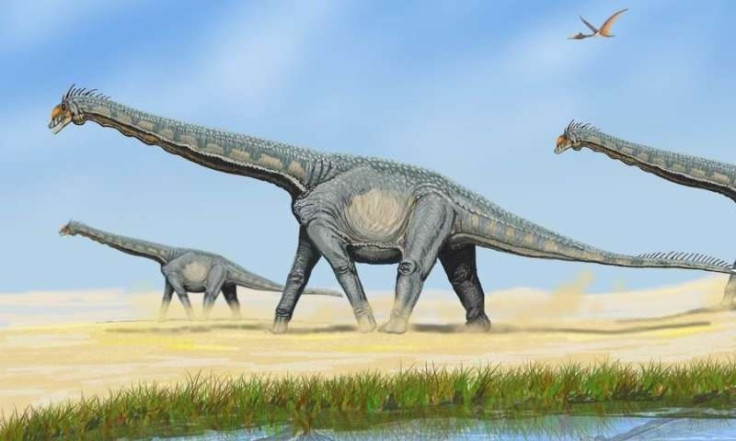How dinosaur dung fertilised the world
Over millions of years, certain dinosaurs may have played a crucial role in dispersing nutrients.

Over millions of years, large herbivores such as certain dinosaurs may have played a crucial role in dispersing vital nutrients across continents, helping to fertilise the Earth, according to new research.
"Theory suggests that large animals are disproportionately important to the spread of fertility across the planet," said Christopher Doughty, author of the study, from Northern Arizona University.
"What better way to test this than to compare fertility in the world during the Cretaceous period [around 145-79 million years ago] – where sauropods, the largest herbivores to exist, roamed freely – to the Carboniferous period [around 360-300 million years ago] – a time in Earth's history before four-legged herbivores evolved."
During these two periods, when plants died they were buried faster than they could decompose, resulting in the formation of coal. Doughty gathered coal samples from around the US and measured the composition of the black rock. He discovered that elements required by plants, such as phosphorus, were more abundant and far better distributed during the age of the dinosaurs than in the Carboniferous period.
The data also showed that the abundance and distribution of elements which are not important to plants and animals, such as aluminium, was the same between the two periods studied, suggesting large herbivores contributed to spreading nutrients around the globe and increasing the fertility of plant life.
These large herbivores would often travel large distances, and when they excreted the plants they had eaten, this would effectively mix nutrients in the soil. When plants are exposed to nutritious elements, they grow faster, resulting in more lush environments.
Today, large plant-eating animals are dwindling in number, which means that this global distribution network for nutrients is being diminished, Doughty says.
"We are rapidly losing our remaining large animals, like forest elephants, and this loss will critically impair the future functioning of ecosystems by reducing their fertility."





















